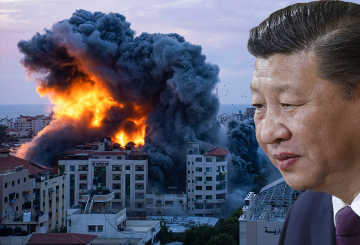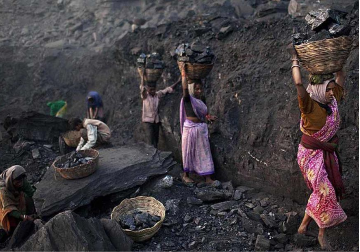
Last Sunday, on 10 March, the Election Commission of India (ECI) announced the schedule of a seven-phased general elections that will pave the way for the formation of the next government in New Delhi.
Little over 900 million (90 crore) strong electorate, 84 million more than in the 2014 electoral contest, is going to exercise franchise in 29 States and seven Union Territories (UTs) that include the national capital of Delhi to elect the 17th Lok Sabha. Voting for the first phase of the election is scheduled for 11 April and the last phase is to be held on 19 May, with the counting of votes taking place on 23 May. Apart from the parliamentary elections, Assembly elections for four States -- Andhra Pradesh, Arunachal Pradesh, Odisha and Sikkim -- have also been announced by the ECI.
Seen in the light of the general election being a humongous exercise, responsibility and burden on the ECI, both in logistical as well as moral terms, is unparalleled because not only popular faith in democracy is at stake but also even the country’s international standing is under international watch.
The size of the electorate has been steadily growing since 1951 when the first general election of the newly freed India took place. In first general elections of 1951-52, 170 million (17 crore) voters had exercised their franchise. One million (10 Lakh) polling booths are going to be there where the electorate are constitutionally expected to cast their votes in a free and fair manner.
The ECI has taken several steps to ensure a transparent electoral exercise as for the first time Voter Verifiable Paper Audit Trail (VVPAT) are going to be used along with all the electronic voting machines (EVM). The VVPAT consists of a printer and a VVPAT Status Display Unit (VSDU). It runs on a battery of 22.5 volts. The control unit and VSDU are kept with the Presiding Officer/Polling Officer and balloting unit and printer are kept in the voting booth.
The use of VVPAT with every EVM has come after the ECI came under considerable pressure from political parties that had expressed serious apprehensions about the possibility of the EVMs being hacked and prone to human manipulation.
Opposition parties like the BSP, the SP, the AAP, demanded scrapping of the EVMs and use of paper ballots after the sweeping victory of the BJP in the 2014 Lok Sabha polls. Earlier, the BJP’s top leader and former Deputy Prime Minister L K Advani had also demanded the return to ballot papers until the EC could ensure foolproof safety and security against any kind of tampering and malfunctioning.
Chief Election Commissioner (CEC) Sunil Arora, while announcing details of the steps for ensuring transparency, informed that for the first time, if a candidate has a criminal history, the political party will need to mandatorily advertise details of it. Further, Form 26, the poll affidavit filed by candidate along with their nomination paper, has been revised as well and requires them to declare income over the past five years, instead of just the past year and all offshore assets.
In yet another step, service voters, up by almost 3.85 lakhs since 2014, will now be able to use the electronically transmitted ballot paper system facility. This will permit voters in the armed forces, police and the government officials posted abroad receive postal ballots via email, print it, fill it and return it via ordinary mail.
The EC has broadened the scope for reporting of violations of model code of conduct by asking people to use C-Vigil mobile application for drawing the Commission’s attention to such violations.
Notwithstanding all the above steps, there are serious apprehensions about the role of the ECI in public minds. These emanate from the EC’s delay in announcing the schedule of the general elections.
In 2014, the schedule became public on 5 March. The last phase was on 12 May and the counting of votes was done on 16 May. People suspect that the delay in announcement took place because the EC gave enough time to the ruling party and the government to make policy decisions, start of projects, laying of foundations and launching and inauguration of schemes before the model code of conduct set in with the announcement. Modi and other ministers inaugurated or announced at least 80 major projects across sectors in a period of 21 days from February 16. Between 4 and 9 March alone, the PM and his ministers laid foundation stones of at least nine mega projects.
Not holding simultaneous assembly elections in Jammu & Kashmir along with the Lok Sabha is yet another decision that raises concern. One of the factors that was mentioned by CEC Sunil Arora was the paucity of security personnel as the main reason for not holding assembly elections in J&K.
In the three States of Bihar, West Bengal and Uttar Pradesh, voting shall take place in all the seven phases. Jharkhand, Madhya Pradesh, Odisha and Maharashtra will vote in four phases. Election in other big States like Andhra Pradesh, Tamil Nadu and Gujarat, however, are being held in a single phase. Such decisions, for which there is no official explanation, create suspicions in popular perception.
Much is at stake this time as the coming electoral battle is going to be one of the dirtiest ones ever witnessed in the country with accusations and counter-accusations being made almost on daily basis by both the ruling party as well as the opposition.
In this background, the EC would need to be on extra vigil so that popular faith in democracy and its institutions not only sustains but also is further strengthened and deepened.
The views expressed above belong to the author(s). ORF research and analyses now available on Telegram! Click here to access our curated content — blogs, longforms and interviews.




 PREV
PREV


